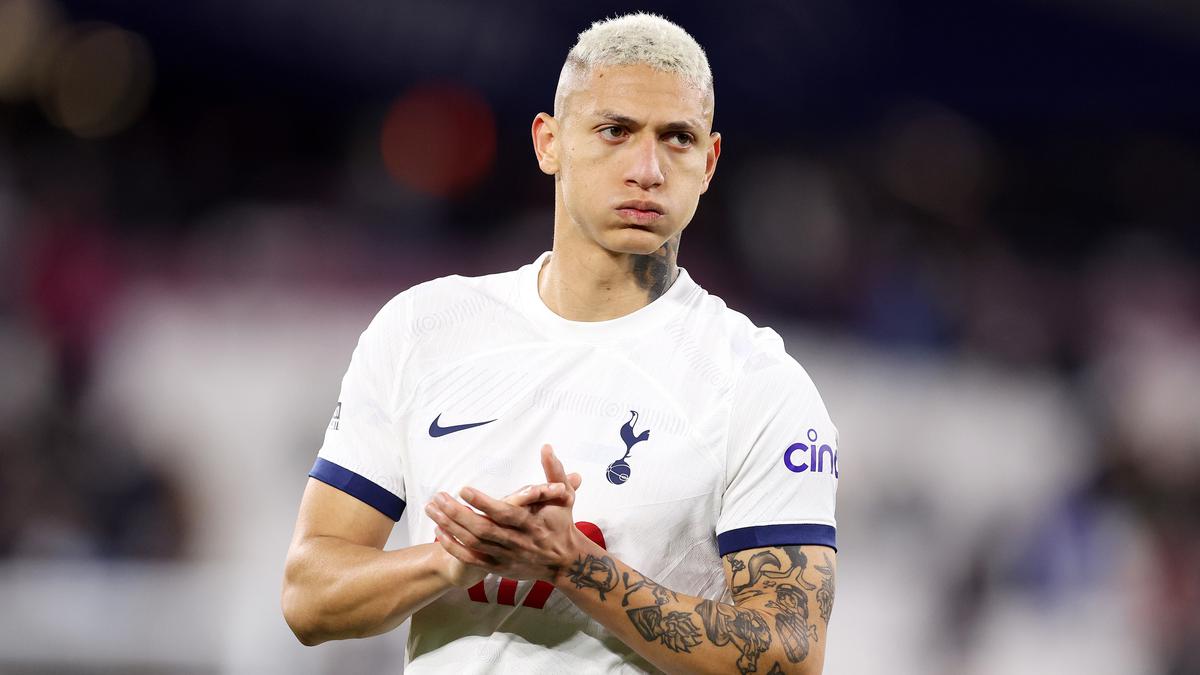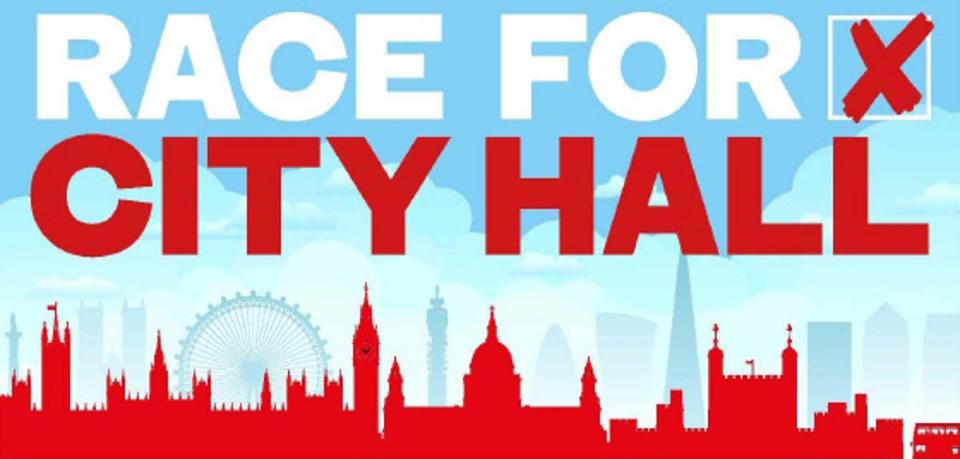The rivalries were intense as ever as Spurs travelled to Stamford Bridge for Sunday’s West London derby against Chelsea.
A bust-up between the two managers – Thomas Tuchel and Antonio Conte – made all the media headlines after a fiery 2-2 draw.
But there was another untold story that unfolded before and throughout the match, involving the fans.
Get The Jewish News Daily Edition by email and never miss our top stories
Free Sign Up
Put simply, many of the three thousand Spurs fans at the game engaged in songs and chants that made reference to the word “Y*ds”.
At the same time, it was clear that the sort of antisemitic abuse that used to be spat out by some Chelsea fans whenever they played their north London rivals had, (to my own ears), stopped.
Thirty minutes before kick-off, a group of Spurs fans, given a large police escort as they made the walk to the ground, could be heard launching into a united chant of “Y*ds!, Y*ds!, Y*ds!” as they approached two pubs containing Chelsea fans near to the concourse of Stamford Bridge’s East Stand.
Police officers, some on horses, prevented clashes that would have been inevitable otherwise.
But where, only a few years ago, a minority of Chelsea fans would have thought nothing about taunting their rivals with songs about “Auschwitz” or perhaps gas noises, it wasn’t there to be heard this time around.
A message in the match programme acknowledged this transformation praising Chelsea fans for “much improvement in recent seasons.”
But it was accepted that still” a small minority of Chelsea supporters have in the past tarnished this derby by using antisemitic chanting, noises and gestures, including the Y-word, offering the justification of opposition fans using those terms as a form of identity.”
In an obvious reference to the continued use of the Y-word by Spurs fans, the message added:”Our stance on this remains clear – there is no place for such behaviour at Chelsea Football Club, regardless of its use by fans of other clubs or its inclusion in the Oxford English Dictionary.
“Indeed, the dictionary’s own definition describes the Y-word as ‘derogatory and offensive’.”
Fans of the West London giants were reminded that Chelsea officially adopted the International Holocaust Remembrance Alliance working definition of antisemitism in January 2020, “becoming the first sports team in the world to do so.”
The chants during Sunday’s game continued to provide the same narrative as outside the ground.
From early into the game came the chants of “Y*d Army”, to be followed the one-worded “Y*ds!” and a few minutes later came the first rendition of “Being a Y*d, being a Y*d, the thing I like most is being a Y*d.”
When Harry Kane headed home an equaliser deep into injury time in the second half an Israeli flag was held aloft in the Spurs end.
Plenty of chants about “hating Tottenham” came from the Chelsea lot, but few if any of the old outright antisemitism that had become a feature of a minority of the club’s following.
On the way back from the game, I bumped into a Chelsea fan, Anthony, who lives close to my home.
I explained the dilemma of being a Spurs fan, caught up in the rivalry with Chelsea since I was a boy, but admiring the fact that the club’s work around combating antisemitism, much of it the result of previous Russian owner Roman Abramovich, had been successful.
“There’s been a lot of hard work undertaken by the club,”says Anthony, who admits he would once have not shirked about jokingly singing some of the songs that have now largely stopped.
“The work around antisemitism has also made being think about singing racist songs in general,” adds Anthony. “Rivalries with teams like Spurs and whoever can be just as intense. But without the racist rubbish that used to go with it.”
Tempers fray on touchline during Sunday’s game
Chelsea were taken over by a consortium led by Todd Boehly and Clearlake Capital in May in a £4.25bn deal after the club was put up for sale by Abramovich, who was forced to sell as a result of sanctions placed against him by the UK government.
The new consortium in charge of the club includes the involvement of property developer and former Jewish Leadership Council chair Jonathan Goldstein.
Goldstein, now a director at the club, is sure to encourage Chelsea to continue with their campaign against antisemitism, having previously been one of those pushing Spurs to be more active in campaigning against the Y-word.
Daniel Finkelstein, the Times journalist and Jewish commentator, as well as being a life-long Blues fan has also been made a director.
In February Spurs had issued a statement on their own website telling fans the club now believed it was “time to move on” from using the Y-word, following consultation with fans at focus groups over the pandemic.
But the campaign in north London does not appear to have had the same impact as it has at Chelsea.
An annual poll conducted by the Tottenham Hotspur Supporters Trust, published earlier this month, showed half of Spurs fans who identified themselves as being Jewish disagree with attempts by the club to stop supporters using the word Y*d, a new poll has revealed.
While nearly one third of Jewish supporters completing the annual survey by the Tottenham Hotspur Supporters Trust said they “always” use the ‘Y’ word at the club’s stadium.
The Fan Survey, which was completed by 6001 fans overall, is conducted by the trust to help understand supporter’s views on a variety of topics relating to the north London club.
It is not known how many of the fans who completed it are Jewish.
The previous weekend, at the first Spurs home game of the season strains of “Y*d Army” could be heard as fans joined the upward escalator at Seven Sisters tube station on their way to last weekend’s first game of the season.
Walking down Seven Sisters Road with me was Pavel Brunssen, a German born PhD student at the University of Michigan, who had himself earned an MA from the Centre for Research on Antisemitism at the Technische Universität in Berlin.
An expert in antisemitism at football across Europe, his initial observations on the conduct of fans at the Spurs v Southampton game, are pretty spot on, to my mind.
The Y-word chants are both “highly problematic and highly contested”, said Brunssen.
But at the same time “you can also tell they are part of the fan culture, of the club culture, of the history of the fans who have reclaimed the word. ”
The Y-word chants sung by Spurs fans now are “of course problematic”, says Brunssen, but they are not sung with the same hatred and antisemitic intent as those who make historical reference to Nazis and gas chambers.
During his 10 day stay in London, he is attempting to speak with supporters groups, and if possible Spurs themselves, to gain further insight into the debate around fans’ use of the Y-word.
“Speaking to Spurs fans I get the feeling that some are saying ‘why are we the target of this campaign when there are other clubs out there whose fans are making gas noises at games?’” says Brunssen.
“I think a different, broader approach is required.
“My sense is Tottenham fans are happy to be part of the debate, and they want to be vocal on it.
“But they want to see fans of other clubs being educated on the debate.”
https://www.jewishnews.co.uk/battle-of-the-bridge-illustrates-spurs-dilemma-over-y-word-chants/



